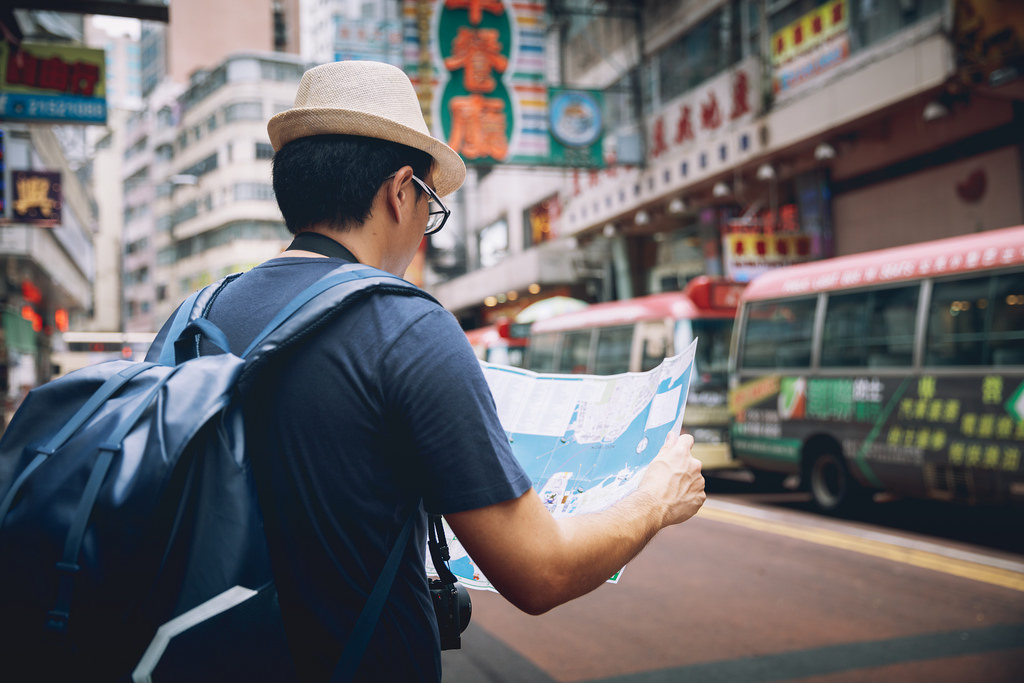Though it may still be a while yet before you should start packing for University, may I suggest a small and inexpensive accessory that I think will be essential to making your year that much better: a paper map.
Paper maps are on the decline with fewer and fewer getting printed each year. With Google Maps and CityMapper, you might think it’s easy to see why, but this technological convenience has a darker, hidden purpose. By narrowing your conception of a city to your vision of a phone screen, you’re limiting what you can see to simply where you work, sleep and consume. I believe these ‘interactive maps’ are part of a super structure, the intent of which is to disorientate you from your surroundings.
Google maps and maps of that ilk are often called ‘Interactive’ because they give you a huge array of ‘data at your fingertips’. However, it is a system that largely gives you instructions to obey. The faceless master to our slave is the humanoid sound that commands you to your ‘destination’, and apparently, it’s one we prefer to that of a real human voice when we ask for directions in person.

With a paper map you can take control of it, use it how you want, mark it up how you want, and work out how to get to where you want to by yourself – instead of how a corporation wants you to get there. By doing so you can gain peripheral knowledge of your city, the system of street names, parallel paths, alternate routes etc. and soon you have learned the map, or rather via the map you have learnt your way around the city and thus the map is now within you. You have become the map.
Rebecca Solnit, the writer, critic and cartographer believes we are all atlases, maps of our own existence, from our childhood homes to our journey to Uni. We have all internalised the maps of our first home, our walks to school etc.
The maps we use now show only a mainstream consensus. Google maps shows you road exits, traffic problems, people post reviews of restaurants etc. and it shows us a landscape built only of driving and consumption. They teach you what to see and thus by extension what not to see. The problem we face is that we spend less and less time with maps, and the maps we do spend time with do not show us the world in any subversive or exciting manner.
Pretty soon there won't be any paper maps, because of google, same way payphones are almost gone.
— Don Capriccioso (@DonCapriccioso) July 29, 2017
When asked to define Google’s mission, the former director of mapping wrote, ‘We hope to create a dynamically generated and highly personalised experience giving preferential treatment to the places you search for, and places you mention in your emails.’ And therein lies the 21st Century Utopia, one that confines you to your emails. A personalised service based only on your previous searches and interests leaves no room for finding what hasn’t before been found; surprises will be lost, hidden gems never discovered. This bespoke mapping is a straightjacket that has bound us to the capitalist spectacle of consumption.
The city wanderer should aim to ‘drift’ through the city, get lost and thus remap your city. In Britain in 2017 we must work to undercut the capitalist spectacle by seeing what we are not supposed to see; the homeless beggar, the illegal cladding, the immoral high rise buildings, the flats left vacant by foreign capital, the social cleansing. Having a map with no specific A-B, no travel time, no blue line, no ‘make a U-turn when possible’ is the first step to seeing the city laid bare. Arthur Machen put it succinctly in his ‘The London Adventure, or the Art of Wandering’ when he said, ‘Here was the notion. What about a tale of a man who ‘lost his way’; who became so entangled in some maze of imagination and speculation that the common, material ways of the world became of no significance to him?’ Google Maps can only show us the ‘common and material ways’. So buy a map and get lost.
Nicholas Porter
Photo Credit: ‘Patrick Foto ;)’ at https://www.flickr.com/photos/patrick_foto/

